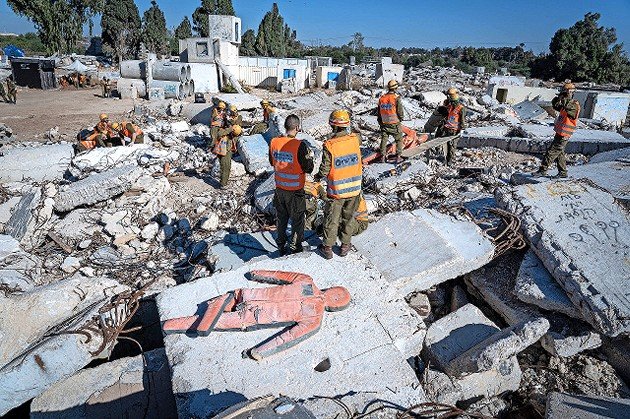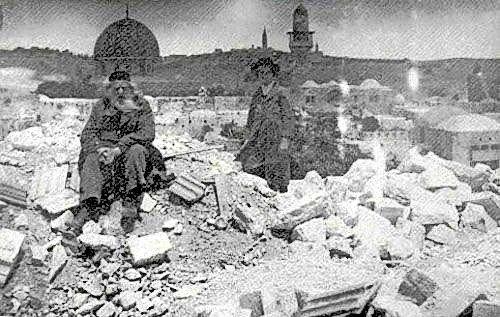Israel quake ‘overdue’
The Knesset Internal Affairs and Environment Committee has called for an emergency meeting to review the country’s earthquake preparedness in light of the devastating earthquake in Turkey and Syria on Monday. Israeli Prime Minister Benjamin Netanyahu has directed National Security Council head Tzachi Hanegbi to “update and reiterate the steps we need to take.”
State Comptroller Matanyahu Englman on Monday urged the government not to delay. The earthquakes that killed more than 7,500 in Turkey and Syria should be viewed as a warning, he said, calling for immediate action. Experts were saying that Israel is overdue for a major, once-in-a-millennia quake that would be much stronger than the devastating earthquake that shook pre-state Palestine in 1927.
“Do not wait for such a disaster to occur in Israel. Act immediately on the country’s preparedness for earthquakes,” he said in a statement, adding that it was perhaps the country’s last opportunity to do so.
The comptroller’s office will soon publish a report on the earthquake preparedness of local authorities and emergency services, mostly focusing on the Jordan Valley region. The report will also examine the implementation of the TAMA 38 plan to strengthen at-risk buildings, which previous reports have found to be insufficient.
Experts have stressed that Israel’s current state of earthquake readiness is concerning. A 2018 report by the previous comptroller estimated that a major earthquake could result in 7,000 casualties and leave 170,000 people homeless. A report from last year found that 600,000 buildings in the country do not meet the standard for earthquake resistance.
Amir Yahav, director of the inter-ministerial steering committee for earthquake preparedness, noted the lack of government action on the matter is concerning. According to Yahav, the committee has not fully convened in seven years due to “ministerial overturn.”
Yahav further explained that, in an effort to better country’s preparedness, the committee had plans to spend 5 billion shekels ($1.4 billion) between 2019 and 2030 to reinforce buildings, but only 7 million shekels ($2 million) has been allocated by the government to the project so far.
Israel is located along the Great Rift Valley, an active fault line that runs from the Red Sea to the Jordan River, determining the border between Israel and Jordan. This geologic fault presents several significant hazards for the area, including frequent minor earthquakes and the potential for more serious seismic events. Vasiliy Manenko, a seismologist from Ariel University, told JNS that Israel’s most vulnerable areas are located along the fault, where older buildings are often found. Tiberias, Beit She’an, Tzfat, Kiryat Shmona and Hatzor HaGlilit are the most at-risk locations, he said.
Israel had a long history of earthquakes, with a major one occurring approximately every 100 years. The last major earthquake was in 1927, 96 years ago. That quake, which had a magnitude of 6.2, claimed 284 lives and injured 940. “There is a virtual guarantee of earthquakes occurring in Israel in the future,” said Manenko.
In an urgent statement on Monday, Beit She’an Mayor Jackie Levy warned about the dangers of a strong earthquake in the Jordan Valley.
“The writing is on the wall and it’s glowing red — an earthquake that will cause destruction, death and ruin in Beit She’an is not a fictional scenario but a tangible one,” wrote Levy. In the event of a major quake, there could be “thousands of casualties and that’s in Beit She’an alone,” he continued.
The Interior Ministry on Tuesday morning also called for an increase in the country’s preparedness level, while noting that several disaster preparedness initiatives had already been carried out by the ministry in recent years.
According to Ministry Director General Rom Peretz, tens of millions of shekels in relief funds were transferred to local municipal authorities over the past five years. Furthermore, an interdisciplinary committee had been established, together with the Home Front Command, Housing Ministry and Defense Ministry, he said.
“Together with other authorities and ministries, we are doing everything possible to [increase] the readiness of the country for extreme scenarios such as an earthquake,” said Peretz.
The committee has already established measures to deal with at-risk regions, including the transfer of additional emergency budgets, and special earthquake training, he continued.
The Health Ministry on Monday expressed its commitment to further funding the reinforcement of hospitals, to which it has been providing an annual budget of 18 million shekels ($5.2 million) since 2018.
The ministry explained that all hospitals built after 1980 were fully reinforced and that future funding would prioritize hospitals located closer to the Great Rift Valley, such as Ziv hospital in Tzfat. A ministry spokesman further said that they were prepared for earthquakes and have been consistently drilling such scenarios.
The Education Ministry also has an initiative for an annual budget for the reinforcement of schools built before 1980. However, this project has only recently gone into effect and is expected to conclude in 2035.









